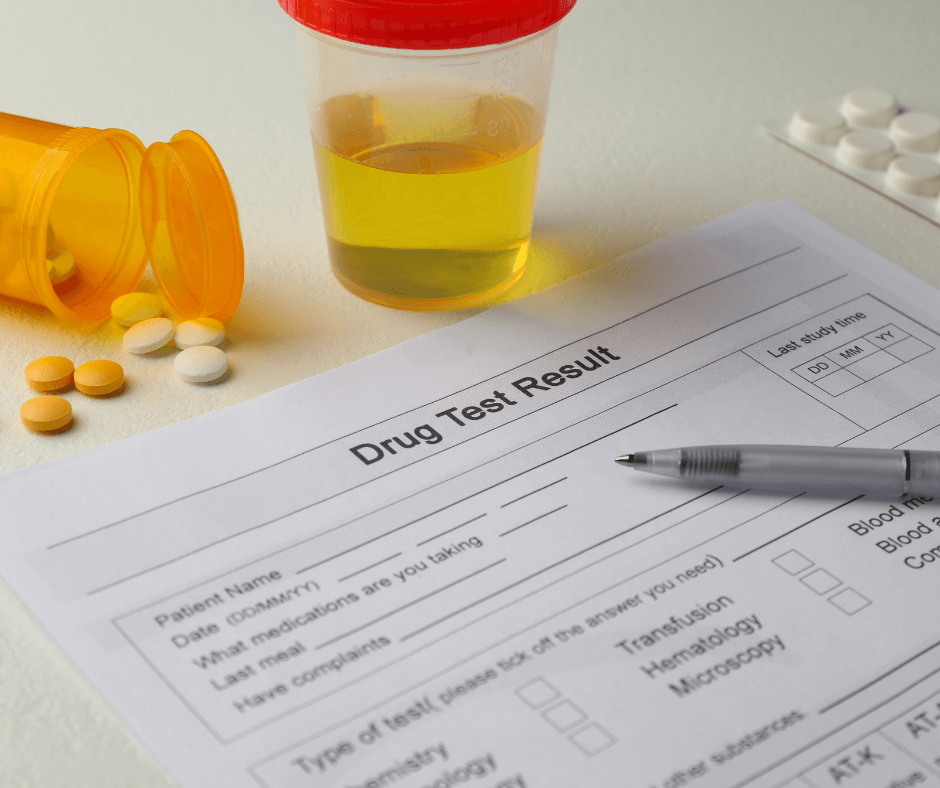I’m going to tell you what the differences are between non-DOT drug screens and Department of Transport (DOT) drug screens. We will cover in detail the key features of each type of test, so you can understand the process for each, and the differences between them.
I’ll then tell you exactly how you can pass any type of drug test, be it for the Department of Transport, or a standard drug test for other purposes.
The Department Of Transport (DOT) Drug Screen Explained
The Department of Transport (DOT) drug testing process is specifically designed to cover employees who hold safety-sensitive positions, specifically in the American transportation industries. This includes commercial truck drivers, railroad workers, airline pilots, and public transport (transit) employees. It also includes federal employees of the same type.
Although it’s a similar drug test, the specifics around DOT drug screening make it a very different experience for people in regulated industries.
Key Features Of DOT Drug Screening
These are the key features you need to know about the Department of Transport drug screening program, to understand how they differ from standard testing:
1. Federal oversight
This drug testing is federally regulated. Any company in the USA covered by the regulations has to comply 100% with the standards and processes of the testing regimes in place.
2. Standardized drug test
The Department of Transport drug test is a standardized urine 5-panel test. There are no deviations from this, no other type of drug test is ever used. The Department of Transport 5 panel test is actually a standard five panel test, as used for non-DOT drug testing as well. However, for private drug testing, panels can be switched out, which isn’t the case for federally regulated industries.
The standard DOT drug test looks for the following substances:
- Marijuana
- Cocaine
- Opiates
- PCP
- Amphetamines/methamphetamines
3. People tested is limited and specifically stated
There is no ambiguity about who will be tested, when they will be tested, or how they will be tested. Employees of companies under the Department of Transport covered regulations will be drug tested in a specific way.
This can be good because you will know exactly when and how you will be tested, and understand the process and the consequences. But it can be bad simply because it means that if you do use any type of drug off-label or recreationally, you have to be incredibly careful and keep it away from your employment.
4. Testing frequency is specific
Department of Transport drug testing is done for very specific reasons as follows:
- Pre-employment
- Randomly each year
- After an accident
- With reasonable suspicion
- Return to Duty
- Follow-up testing after failure
Note that reasonable suspicion is a reason to be tested under the DOT guidelines. This is not usually the case in unregulated industries, because legally it’s a minefield as people could sue the employer for discrimination.
5. Specific documentation & legal requirements required
There are strict paper trails and guidelines written into the legal requirements for federally mandated industries.
They include the following key points:
- All drug test must be performed at specified and certified drug testing company labs.
- Specific forms, including the Custody & Control Form (CCF) must be used to ensure the chain of custody.
- Employees who fail a drug test must be referred to as substance abuse professionals, who must also be regulated and certified for the purpose.
- A formal return to work process must be followed. This includes paperwork, interviews, completion of the rehabilitation process and investigation, and a drug test.
Key Features Of Non-DOT Drug Screening
As you can see, the Department of Transport’s federal regulations have a lot of red tape around them to ensure a solid process. That simply isn’t the case with non-DOT drug screens. The key point to understand is that non-DOT drug testing is every other type of drug testing in America right now.
So unless you work in a federally mandated transport company, then the drug testing won’t be covered by those regulations I’ve just explained, and how they perform those tests, the type of test, the paperwork, and follow-up, are all the decisions of the individual company or body.
Let’s look at all that in more detail now:
- Employer-specific policies in place
Both the employer or public bodies, own processes are what matters here. Internal policies are what drives the drug screening policies and process. State laws can also play a part in this.
So everything related to DOT drug testing can be discarded from your mind in relation to all other types of drug testing because they are not relevant.
- Substances tested for
There is no standard for drug testing. The type of drug test (urine, hair, saliva, blood) is done by the employer or body.
The substances looked for are also by choice. Although there are standard lists of substances looked for on each level of panel test (5 panel and 10 panel for example), individual panels can be swapped out for anything the person who’s paying for the test wants.
To give you some idea of the standard tests, as for the Department of Transport, the 5 panel test looks for:
- Marijuana
- Cocaine
- Opiates
- Amphetamines
- PCP
The 10 panel test looks for everything on the five panel test is listed, with the addition of:
- Benzodiazepines
- Barbiturates
- Methadone
- Methaqualone (Quaaludes)
- Propoxyphene (Darvon)
In addition, you have to be aware that other substances can be looked for, especially alcohol.
- Types of drug test employed
Non-DOT drug screen methods can include any of the following:
- Urine testing (most common)
- Hair testing (most dangerous)
- Saliva testing (cheapest)
- Blood testing (very rare)
Although you’ll know in advance what type of test it is, you simply can’t prepare for a single type of test throughout your employment, unless you are deeply aware of the type of drug tests that your company or public body users.
- Unknown testing frequency
There is no specific testing frequency, type of test, or standard process you can rely on.
You could face a drug test under any of the following circumstances:
- Pre-employment
- Random
- Post-accident
- Internal process
Note that although most companies have “with reasonable suspicion” written into their employment contracts, due to the fact that they could be sued for discrimination in the modern age, this is now rarely done.
- Post-test processes are random
The individual policies will determine what happens during and after a drug test, especially if failed. So you won’t know how it’s going to be handled if you fail a drug test. The options could range from a slap on the wrist through to instant termination of the contract.
You also will know that you have the right to appeal, and to get a retest, but the process for doing so, and how it’s done will also vary dramatically depending on the process being used.
Summary: DOT Vs Non-DOT Drug Screens
So look guys, you’re here because you’re worried about a non-DOT drug screen. What you need to know is how one is performed, and what your options are, right?
Mostly it’s a urine non-DOT drug test, but this isn’t always the case, and as you now know, there is no standardized process or type of test you might face.
In addition, you won’t know what substances are looked for. I think this is odd, because the reason industries are DOT-regulated is because of the danger inherent in using machinery or driving under the influence, yet it’s easier to pass a DOT drug test because you know the exact things they will look for, and the exact things not to take, and what you can get away with.
So in the minefield of all drug testing outside of those industries, all you can do is understand the process generally, and how to avoid detection for any type of drug use.
How Is A Non-DOT Drug Test Performed?
When it comes to how is a non-DOT performed, it will depend on the type of test, but we will focus on the urine test here as it’s by far the most common.
You’ll get an appointment to turn up at a local facility to submit your sample. It will be an unsupervised test, which means nobody will be in the room watching you. You’ll submit your sample, and they will take the temperature of it within two minutes. Then, you’ll leave, and the person who commissioned the test will get the results within a couple of days.
To pass a non-DOT drug screen, you can use the following:
- Quick Luck Synthetic Urine
- Rescue Cleanse Detox Drink
- Toxin Rid Detox Pills
- Oral Clear Saliva Neutralizing Gum
If you’re working for a company that does drug testing of any type, then I strongly suggest that you get those products in your home right now.
It’s actually far more difficult to predict when you’re in a non-DOT situation, so grab this stuff now to ensure your security.




